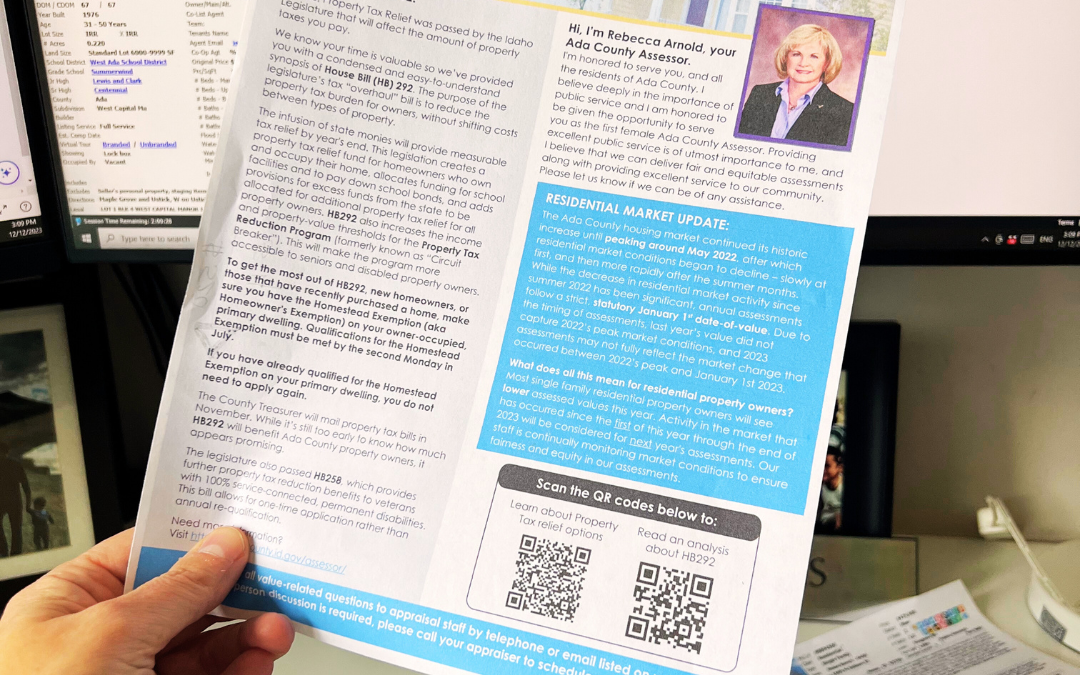
A Parent’s Guide to Schools in Boise, Eagle and Meridian
Whether you’re exploring public or private schooling options in Boise, Idaho, you’ll discover a supportive community and a dedication to academic excellence that fosters children’s growth and development. Among the top-rated public and private schools in Boise, Idaho, and the surrounding Treasure Valley, parents can find several outstanding options. Before relocating with school-aged children, scheduling a relocation consultation is essential for narrowing down school choices and gaining insight into what to expect in the area. This article is a parent’s guide to schools in Boise, Eagle and Meridian, Idaho.
Boise Public Schools
Boise’s public schools generally fare well compared to those in other major cities across the United States. While rankings can vary based on different criteria and methodologies used, Boise consistently ranks above average in terms of academic performance, teacher quality, and overall student satisfaction. One factor contributing to Boise’s strong public school system is its relatively low student-to-teacher ratios, which allow for more personalized attention and support for students. Additionally, the city’s commitment to education funding and resources helps ensure that schools have the tools and programs needed to succeed.
Overall, while Boise may not always top national rankings due to its smaller size compared to major metropolitan areas, its public schools consistently provide a high-quality education and supportive environment for students to thrive. Boise’s public school system boasts a reputation for academic excellence and a commitment to student success. Here’s a breakdown of some of the top-rated public schools in the area:
Boise High School: Renowned for its rigorous academic programs and diverse extracurricular offerings, Boise High consistently ranks among the top public high schools in the state.
Timberline High School: With a focus on college preparedness and a supportive learning environment, Timberline High School earns high marks for its dedicated faculty and comprehensive curriculum.
North Junior High School: Recognized for its strong community involvement and commitment to student engagement, North Junior High provides a nurturing environment for middle school students to thrive.
Riverside Elementary School: Known for its innovative teaching methods and emphasis on individualized instruction, Riverside Elementary excels in fostering a love of learning among its students.
Hillcrest Elementary School: I bring up this school as my son attends here and after a private pre-school, I was a bit apprehensive about putting him in public school. However, I have found it to be a very pleasant experience. There is a relatively low student-to-teacher ratio, and the teachers, staff, and administration are very open to communicating with the parents. They have various programs for children with special needs and go above and beyond to look after children in need of more support, materially or emotionally.
There are over 30 school districts in Boise and the surrounding Treasure Valley, and even a bit outside of that. You can find which district belongs to each area by clicking on this link to the various districts.
Top Boise Private Schools:
In addition to its public school system, Boise offers a variety of private schools that provide unique educational experiences.If you are considering relocating to the Boise area, I recommend contacting several schools in the private sector you are considering and setting up an in-person interview and tour. This will allow you to look for housing closer to the school and also to get on an enrollment waiting list as soon as possible before moving to Boise. Here are some of the top-rated private schools in the area:
Riverstone International School: As Idaho’s only International Baccalaureate World School, Riverstone International offers a globally focused education that emphasizes critical thinking, creativity, and cultural awareness.
The Ambrose School: Rooted in classical Christian education principles, The Ambrose School is renowned for its rigorous academic curriculum, character development initiatives, and strong sense of community.
Bishop Kelly High School: With a commitment to academic excellence, spiritual growth, and service to others, Bishop Kelly High School provides a holistic education that prepares students for success in college and beyond.
Sage International School: As a public charter school with a focus on international studies and language immersion, Sage International School offers a unique educational model that prepares students to become global citizens and future leaders.
Cole Valley Christian Schools: Christian education with a focus on developing the whole person. Offers a range of academic and extracurricular programs.
Foothills School of Arts and Sciences. Independent, non-sectarian school offering progressive, inquiry-based learning. Emphasizes arts and sciences education.
Here are some resources to research schools by area:
GreatSchools.org. This website offers a comprehensive directory of schools, including both public and private institutions, along with detailed profiles, ratings, and reviews from parents and students.
Another useful resource is the National Center for Education Statistics (NCES) School Locator tool, which allows you to search for schools by location and type. While NCES primarily focuses on public schools, it also provides information about private schools that participate in federal education programs.
Transportation to Schools in Boise
- School Buses: The Boise School District operates a comprehensive school bus transportation system, providing bus service to students across the district. School buses are available for eligible students who live a certain distance from their designated school or in areas with hazardous walking conditions.
- Walking and Biking: Due to the number of public schools and a low ratio of students to teachers, many students may live within walking or biking distance of their school choose & choose to walk or bike to school. The Boise area prioritizes pedestrian and bicycle safety, with designated bike lanes, crosswalks, and pedestrian-friendly infrastructure in many neighborhoods.
- Parent/Guardian Transportation: Some parents or guardians may choose to transport their children to and from school using their vehicles. This option provides flexibility and convenience for families, especially those who live close to their child’s school or have multiple children attending different schools.
- Public Transit: Public transit options, such as buses operated by Valley Regional Transit, are available for students who may need alternative transportation to and from school. Students can use public transit routes to access schools located along bus routes throughout the Boise area.
Overall, if you are considering a move to the Boise area and have school-aged children, schools are an important part of the decision process. If a specific school is important to you and your family, it is key to research and set up appointments with these schools before relocating. Often, private schools here have waiting lists or specific criteria to enroll, as do some charter schools, such as Sage International, mentioned above. Once a school has been chosen, it will help to narrow down which part of Boise or the surrounding Treasure Valley you will want to make home.






 Boise is renowned for its support of local businesses and hosts several outdoor markets during the warmer months. Even in winter, you can still experience these markets at two different locations.
Boise is renowned for its support of local businesses and hosts several outdoor markets during the warmer months. Even in winter, you can still experience these markets at two different locations.

 The Treasure Valley is brimming with beautiful parks that come alive in winter. There are several private gardens and parks that are a must-visit in winter, as well as places to play, run, or build a snowman during the day. Here are a few of my top recommendations:
The Treasure Valley is brimming with beautiful parks that come alive in winter. There are several private gardens and parks that are a must-visit in winter, as well as places to play, run, or build a snowman during the day. Here are a few of my top recommendations:
 Jennifer Louis, Boise Area Real Estate Expert is a relocation specialist for Boise and the Treasure Valley. Helping hundreds succeed in finding their perfect home while simultaneously assisting homeowners to prepare and sell their homes.
Jennifer Louis, Boise Area Real Estate Expert is a relocation specialist for Boise and the Treasure Valley. Helping hundreds succeed in finding their perfect home while simultaneously assisting homeowners to prepare and sell their homes. 